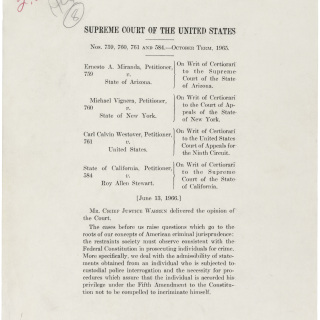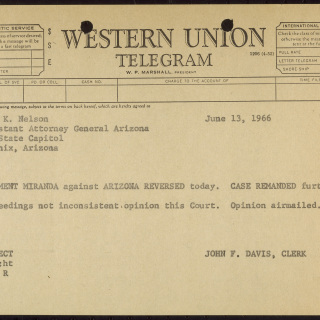You Have the Right to Remain Silent 1966
Thanks in part to police dramas on television, many Americans can recite the Miranda Warning, at least in part, from memory. The case that established this procedure was Miranda v. Arizona. Ernesto Miranda’s lawyers asserted that his criminal conviction was unlawful because it was based on a confession he made without being properly informed of his rights. Miranda won his Supreme Court case in a 5-4 decision.
Miranda v. Arizona was one of the Court’s most contentious criminal procedure rulings. Chief Justice Warren wrote the majority opinion, which decreed that the Fifth and Sixth Amendments compel police to give a warning to suspected criminals before interrogating them. A series of subsequent rulings undercut the decision by granting multiple exceptions to the rule.

